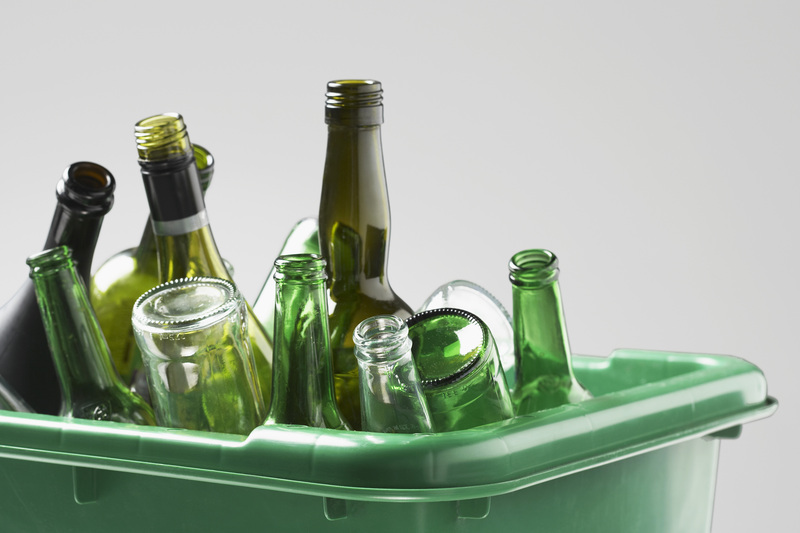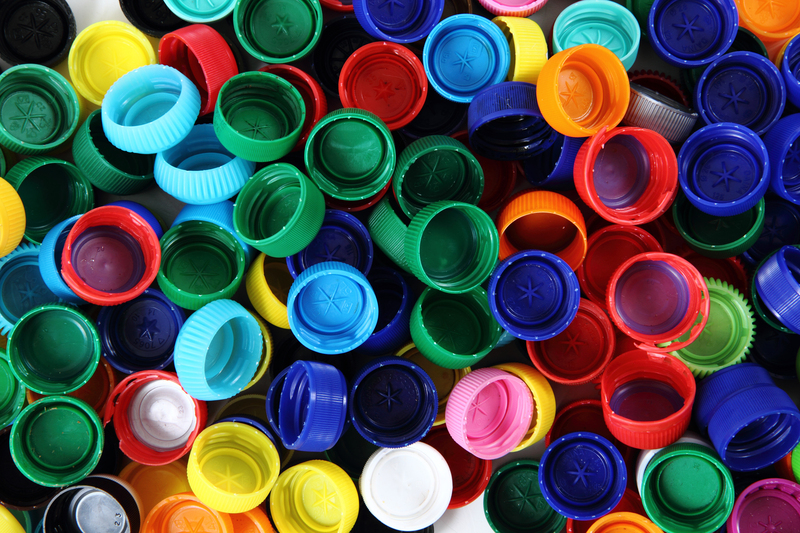Transform Your Recycling Habits with These Tips
Are you eager to improve your recycling efforts and make a real impact on the planet? In our ever-changing world, adopting effective recycling habits is essential for a healthier environment and a sustainable future. This comprehensive guide will reveal practical ways to upgrade your recycling habits, offering you easy-to-follow strategies, expert tips, and actionable steps to make recycling a seamless part of your daily routine.
Why Recycling Matters More Than Ever
Before we dive into actionable steps, it's crucial to understand why recycling is vital. Globally, waste generation is on the rise, causing pollution, greenhouse gas emissions, and depletion of natural resources. Recycling transforms waste into reusable materials, reducing the need for raw materials and lowering energy consumption. Here are some significant benefits:
- Conserves resources: Recycling conserves raw materials like wood, water, and minerals.
- Saves energy: Producing goods from recycled materials uses less energy than from virgin resources.
- Reduces pollution: Lower waste in landfills and incinerators decreases greenhouse gas emissions.
- Boosts economic growth: The recycling industry creates jobs and stimulates sustainable economic activity.

Assess Your Current Recycling Habits
Start your transformation by examining your current recycling behaviors. Ask yourself:
- Which materials do I recycle most often?
- Do I know what my local recycling program accepts?
- How much waste am I generating each week?
- Are there habits or products I can change to recycle more?
Recognizing your starting point will help you target specific improvements and avoid wish-cycling--placing non-recyclables in the bin in hopes they'll be recycled.
Master Local Recycling Guidelines
Every community has slightly different rules for recycling. To transform your recycling habits, review and master your municipality's recycling guidelines. Commonly accepted materials include:
- Paper and cardboard
- Certain plastics (usually #1 and #2)
- Steel, tin, and aluminum cans
- Glass bottles and jars
Pro tip: Visit your city or town's waste management website to download official recycling charts. Some even provide apps with weekly reminders and sorting help.
Materials You Should Never Recycle
- Plastic bags (unless specified - usually accepted at grocery store collection bins)
- Greasy pizza boxes (food residue contaminates recycling)
- Used paper towels or napkins
- Styrofoam (very rarely accepted curbside)
- Ceramics or Pyrex
Rinse and Sort Like a Pro
A little preparation goes a long way in ensuring your recyclables don't end up in a landfill. Take these steps:
- Rinse food containers: Remove food residue to prevent contamination of other materials.
- Remove caps and lids: They're often made of non-recyclable materials (check your local rules).
- Flatten boxes: Cardboard and cartons should be broken down to save space in bins and trucks.
- Keep materials dry: Wet paper and cardboard may be ruined for recycling.
Smart Tips to Supercharge Your Recycling Habits
Ready to see major improvements? Use these expert strategies to transform your recycling habits and maximize your impact:
1. Set Up a Recycling Station
- Dedicate space: Place recycling bins next to your trash to make it easy and intuitive.
- Label bins clearly: Help everyone in your home or office sort materials correctly.
- Include reminders: Post a list of accepted items above the bin for quick reference.
2. Teach and Motivate Your Household
- Involve everyone: Make recycling a regular family or office routine.
- Gamify recycling: Track progress and reward top recyclers in your group.
- Lead by example: Your actions influence others to adopt better recycling habits.
3. Compost Organic Waste
Composting food scraps, coffee grounds, and yard debris keeps organics out of landfills. When food waste rots in a landfill, it generates methane, a powerful greenhouse gas. Composting can boost your recycling rate and benefit your garden. Start small with a countertop bin or outdoor composter.
4. Recycle E-Waste Responsibly
- Don't toss electronics: Devices contain toxic materials but are also rich in reclaimable metals.
- Use certified drop-offs: Find local e-waste collection events or certified recyclers.
- Wipe data: Always erase personal information from phones and computers before recycling.
5. Bring Back Reusables
The most effective recycling strategy is to create less waste in the first place. Replace disposables with durable items:
- Reusable water bottles and coffee cups
- Cloth shopping bags
- Lunchboxes instead of plastic bags
- Sturdy containers for food storage
Every time you reuse, you prevent packaging from entering the recycling stream--or worse, the landfill.
Innovative Recycling Solutions for Modern Living
As sustainability evolves, creative solutions are making it easier to improve your recycling efforts and reduce your environmental footprint:
Participate in Terracycle Programs
Terracycle is a global leader that recycles almost anything--crisp packets, toothbrushes, beauty products, and more. Find a drop-off point or join a collection program to responsibly dispose of difficult-to-recycle items.
Mobile Apps to Track and Learn
- Recycle Coach: Local rules, reminders, and educational tools.
- Ecosia: Search engine that plants trees and teaches eco-habits.
- iRecycle: Guides for recycling locations and material-specific info.
Join Community Efforts
- Adopt a street or park: Organize or join neighborhood clean-ups.
- School campaigns: Encourage recycling in classrooms with creative challenges.
- Advocate for better facilities: Petition for more recycling bins in public spaces.
Common Recycling Mistakes (And How to Avoid Them)
Even the most committed recyclers can stumble. Here are some frequent errors and simple ways to prevent them:
- Wish-cycling: When in doubt, throw it out! Incorrect materials contaminate valuable recyclables.
- Bagging recyclables: Most recycling centers don't process plastic grocery or trash bags--empty items directly into bins.
- Not emptying containers: Items with food or liquid left inside ruin other recyclables.
- Mixing materials: E.g., envelopes with plastic windows, or paper with glitter--separate when possible.
How to Correct Bad Habits
- Stay informed: Recycling rules change, so revisit local guidelines annually.
- Seek feedback: Ask your waste hauler or community group for tips.
- Practice properly: If you're not sure, look up the item before recycling.
Go Beyond Recycling: Embrace the 5 Rs
While recycling is powerful, it's more impactful as part of a holistic waste strategy. The 5 Rs are:
- Refuse unnecessary packaging and single-use products.
- Reduce the amount of stuff you buy--choose quality over quantity.
- Reuse containers, clothing, and other goods whenever possible.
- Repurpose materials for new uses (e.g., jars as organizers).
- Recycle correctly and consistently, following all guidelines.
When you make mindful choices across all 5 Rs, you'll create far less waste--and amplify the positive effects of your recycling efforts.
Understand the Global Impact of Recycling
Your efforts extend beyond your community! By transforming your recycling habits, you participate in a circular economy, fostering:
- Clean air and water: Reduced landfill waste means fewer pollutants leaking into ecosystems.
- Wildlife protection: Recycling lessens the need for resource extraction in fragile habitats.
- Climate action: Lower emissions from factories and waste sites slow global warming.
Every can, bottle, and box you recycle helps ensure a better future for the next generation.

Frequently Asked Questions About Recycling Habits
Can all plastics be recycled?
No. Only certain types--usually #1 (PET) and #2 (HDPE)--are widely recycled. Plastic bags, polystyrene (#6), and mixed plastics are rarely accepted curbside. Check your local guide.
How clean do recyclables need to be?
Rinse containers to remove food and drink residue. They don't need to be spotless, but should be free of scraps and liquids to avoid contaminating paper and cardboard.
Is recycling still worthwhile?
Absolutely! Even with processing challenges, recycling saves energy, conserves resources, and reduces landfill use. Demand for recycled materials is increasing as businesses and governments commit to sustainability.
What should I do if my area doesn't offer curbside recycling?
Look for drop-off centers, retail take-back programs, or community collection events. Some towns and cities offer recycling hubs at libraries, schools, or grocery stores.
Your Sustainable Future Starts Today
Adopting better recycling habits is more than just tossing bottles in a blue bin. By understanding your local rules, preparing recyclables correctly, reducing waste, and getting creative with reuse and upcycling, you can revolutionize your approach to waste management.
Start small--add one new habit today, then build on your success. Share your knowledge with friends and family, and be proud of every positive change you make! By leading the way, you inspire a ripple effect of sustainability across your community and the wider world.
The journey toward a greener planet begins with a single step--transform your recycling habits today, and be the difference our world needs.
```